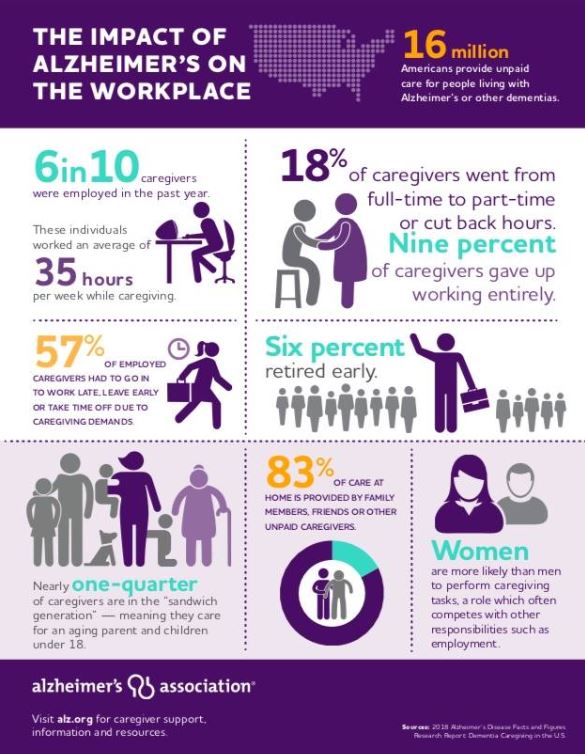Take a moment to look at the impact of Alzheimer’s on the workplace. Almost 1 in 5 caregivers went from full-time to part-time or cut back their hours. Over half of employed caregivers go into work late, leave early or take time off due to caregiving demands. In addition, caregivers are typically worried about their person with dementia’s well-being when they are not with them.
The impact of Alzheimer’s on the workplace shows up in the form of lost productivity, employee retention, absenteeism, and presenteeism (being present but not focused on work).
The productivity cost to employers is ramping up as the number of Americans are being affected by Alzheimer’s increases. At last count, caregiving cost businesses $16 billion per year. It’s not just the individual with Alzheimer’s that’s impacted. It’s their team of caregivers as well.
More than 60% of caregivers are women and they provide approximately 27 hours of caregiving in addition to their normal work week. Without support from their employers, the likelihood of them continuing to work lessens. At the very least, productivity of employee caregivers suffers. But it doesn’t have to.
This is an opportunity for businesses to step up and promote programs and resources that can help adult caregivers. These are typically middle management employees with decades of experience. They are potentially a company’s brain trust. That means companies need to take action or lose these valuable employees just when the number of eligible workers is dropping.
How will you choose to lead your company during this challenging and unavoidable situation? When will you take action to help reduce the impact of Alzheimer’s on the workplace?

